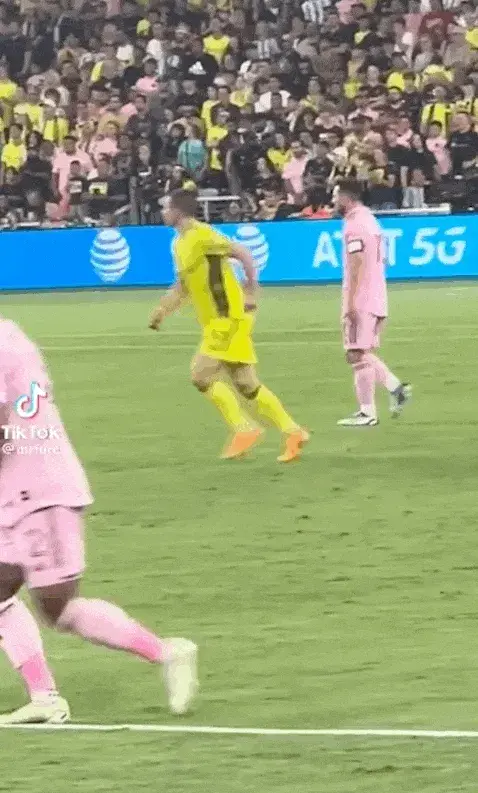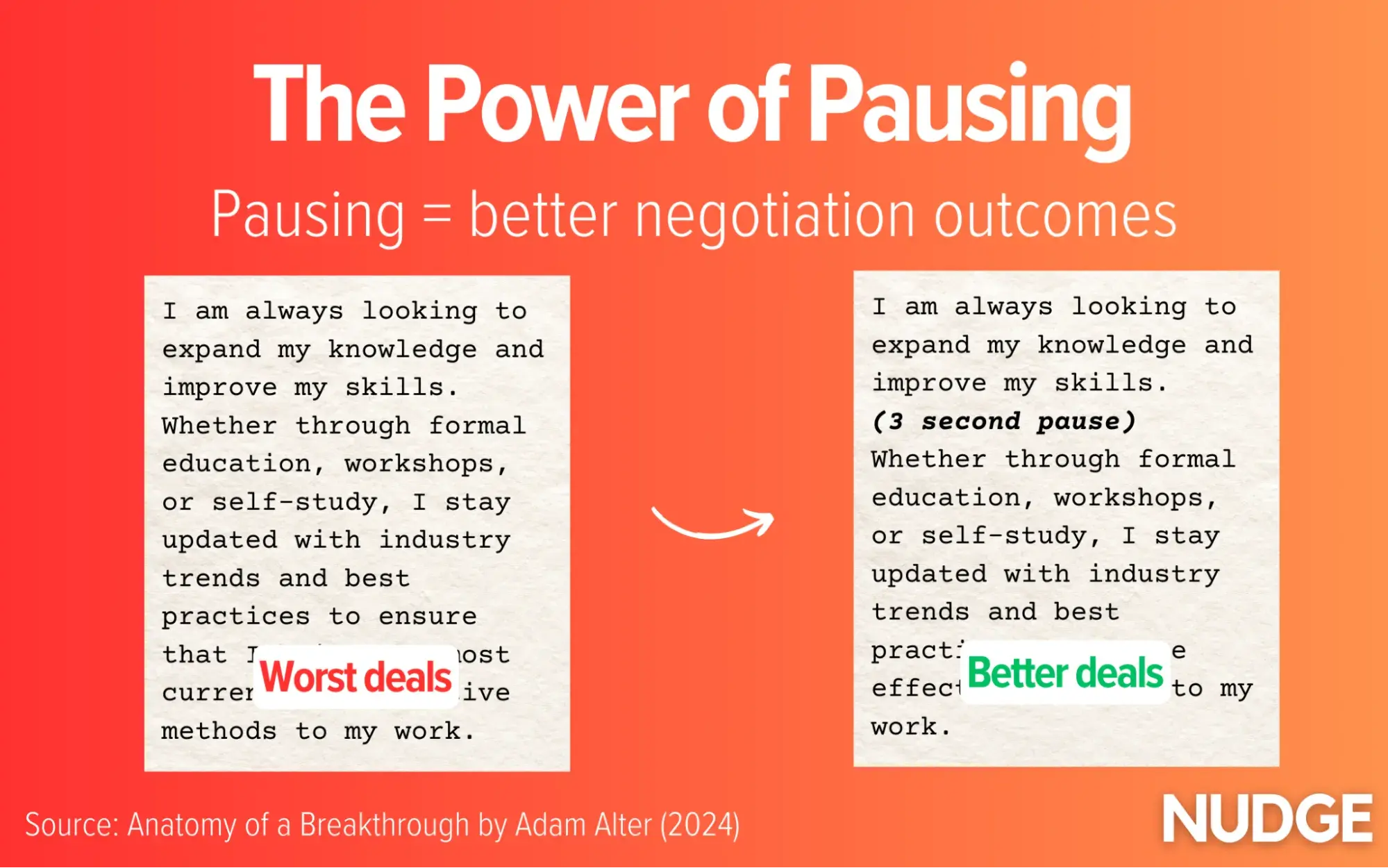Welcome to Creator Columnswhere we bring experts HubSpot Creator voices to blogs that inspire and help you grow better.

A few months ago, on my podcast PushJonah Berger told me about the power of pause.
The act of pausing seems like a small thing. But recent studies show that pausing can make you more persuasive and can improve results.
In this blog, I’ll share some of the science behind this phenomenon and how to apply it to your next negotiation.
Pausing shows confidence.
He shared that highly successful speakers often use a surprising amount of pauses when speaking.
Jonah shared this clip from Obama’s speech and told me to listen for the breaks. You can watch the speech here:
That clip is only 45 seconds long, but Obama pauses for a second or more eight times.
Jonah says this is no accident. Obama has taught himself to slow down and pause more often. Why? Well, according to Jonah, that makes the former president sound more confident.
Jona has conducted studies that prove this (cited in his book Magic Words).
He and his colleagues showed a video of the speech to a group of participants. 50% of the participants heard the presenter’s speech without pauses. The other 50% of participants listened to the exact same presentation, but with pauses included.
Two different groups of participants were then asked what they thought of the speaker, how they rated the content, and how positive they felt about the speech.
Jonah Berger found that the speaker who paused scored better on all different questions.
Remember, the content of the speech was identical – tone, style, emphasis – everything was the same. The only difference between the two speeches was the pauses, and those pauses dramatically changed the way the speech was perceived.
Breaks can be strategic.
The pause will not only help political candidates. It helped one of the world’s greatest footballers, Lionel Messi.
Pausing is the one counterintuitive thing Lionel Messi does that makes him great. Unlike his peers, Messi spends the first three minutes of the match doing nothing. He doesn’t sprint, attack or pass; he walks on the field.
But why?

Adam Alter shared the reason while speaking with me on a recent episode of Nudge.
He explained that Messi struggled as a youngster. He was extremely nervous when he first stepped onto the field. He was often physically ill at the start of the game and had to leave the field to recover. His anxiety made it impossible for Messi to play at his best.
Maradona said that Messi will never succeed because he is too anxious and too nervous.
Messi seemed destined for a career of missed opportunities until a Barcelona youth coach gave him some advice.
He told him to take a break at the beginning of the game, not to feel pressure to run or attack, and not to start playing the game until the third minute. Just walk around, take in your surroundings, watch your opponents and keep calm.
Pausing succeeded. Instead of starting the game frantically like any other player, Messi took his time to settle his nerves. And this inactivity became a surprising advantage.
With time to spare, Messi had the space to quickly analyze his opponents. Are there weaknesses in their setup? Is there a place somewhere in the defense? He usually has, and Messi, after calming his nerves, would have no problem taking advantage of it.
The power of silence in negotiations
Taking a break has strategic benefits for Lionel Messi and Barack Obama, helping them both reach the top of their game.
But is it useful for the rest of us? Can we apply it if we don’t play professional football or provide professional pitches?
Well yes. PROOF suggests that it might be worth trying this approach during the next negotiations.
In one study (cited in Anatomy of a breakthrough), a team of psychologists studied the value of pauses during negotiations. In particular, researchers have focused on salary negotiations. They assumed that taking a break might convince hiring managers to offer higher wages.
For the test, the researchers recruited 60 pairs of university students. Students are assigned one of two roles. Half were hiring managers, half were job candidates. Everyone is given 45 minutes to negotiate payment for hypothetical jobs.
But here’s the twist. 50% of job applicants are explicitly told to take a break during negotiations.
So half of them negotiated normally, but the other half were forced to pause.

Pausing succeeded. Job applicants who took a break were offered a higher pay package by the hiring manager.
Those who paused negotiated better deals (for both parties). According to Adam Alter:
“They inspired superior outcomes for both sides and encouraged negotiators to see that some issues can be negotiated to the benefit of both sides, rather than competitively.”
It’s normal to feel like Messi at the start of your career – anxious and sick with energy. In negotiations, we feel the need to quickly show our strength and immediately dismiss problems, driven by a rush of adrenaline that makes us speak louder, faster and without pauses.
However, laboratory studies reveal that this natural response has significant drawbacks. Those who vigorously rattle off points will have worse negotiation results than those who take your time.
Pausing may seem counterintuitive or wrong, but if it works for Barack Obama and Lionel Messi, it should work for you.
https://blog.hubspot.com/marketing/power-silence-negotiation

![Download now: Negotiate like a pro [Free Guide]](https://no-cache.hubspot.com/cta/default/53/a3e6022e-8457-4a1e-8a5f-335ee56050c4.png)


